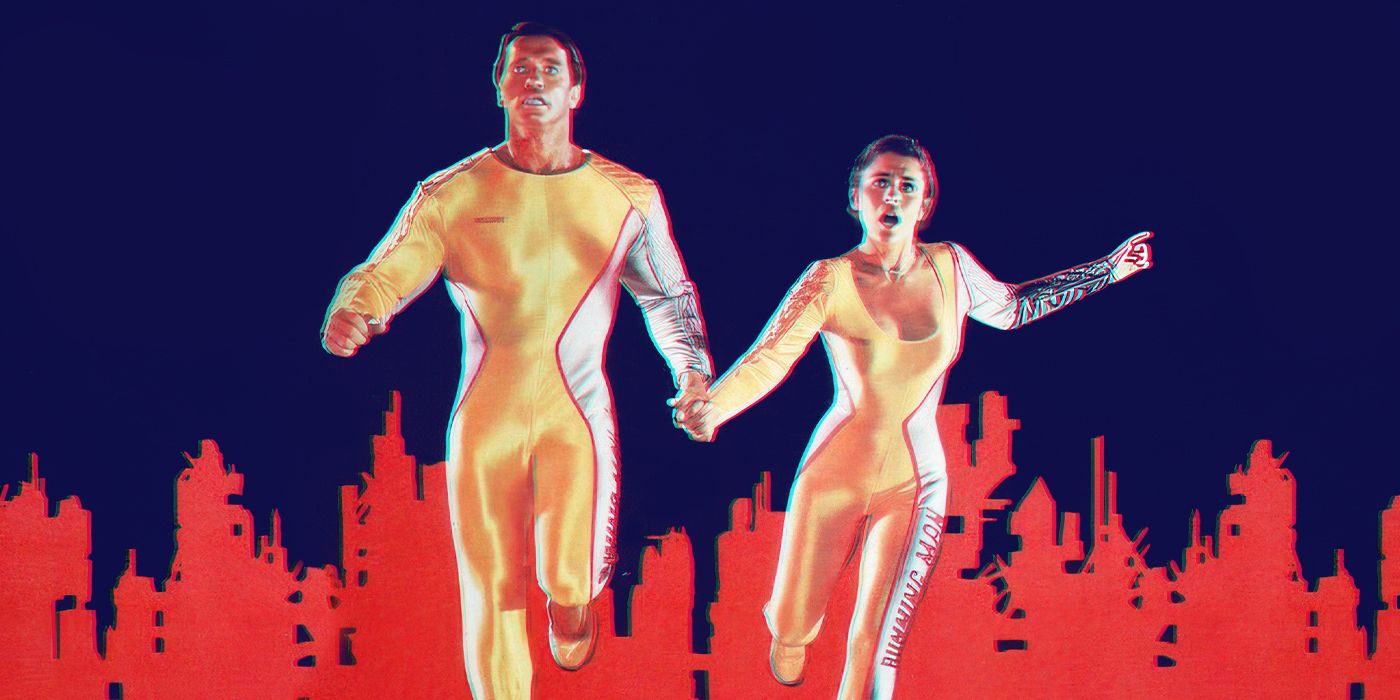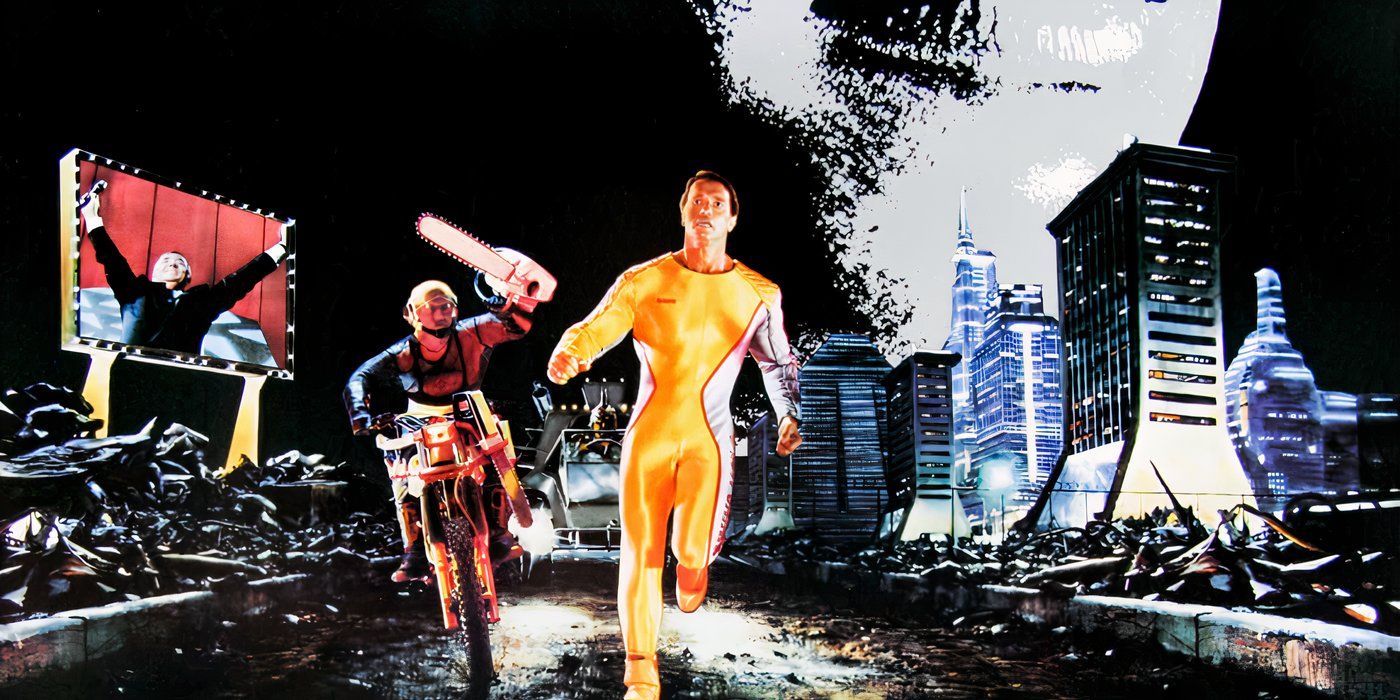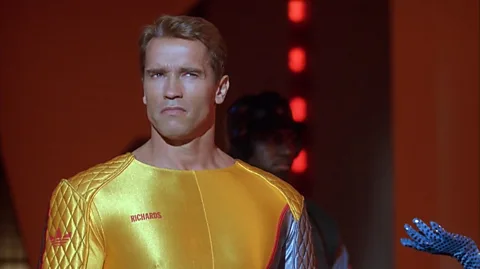The Running Man: A Dystopian Masterpiece That Predicted Our Reality
 Label: The iconic 1987 movie poster featuring Arnold Schwarzenegger
Label: The iconic 1987 movie poster featuring Arnold Schwarzenegger
Arnold Schwarzenegger's 1987 science fiction thriller "The Running Man" stands as one of the most prophetic films of the 1980s. Based on Stephen King's novel (written under his pseudonym Richard Bachman), this dystopian action film painted a terrifying picture of a future dominated by reality television, media manipulation, and authoritarian control that feels eerily relevant today.
The Story: Entertainment as Control
:max_bytes(150000):strip_icc()/the-running-man-44-062725-c3f60697019d4ed1b9e83882238ede05.jpg) Label: A glimpse into the dystopian future world of The Running Man
Label: A glimpse into the dystopian future world of The Running Man
Set in 2017 (which was 30 years in the future when the film was made), "The Running Man" presents a world where economic collapse has led to totalitarian rule. The government controls the masses through a deadly game show where convicted criminals must fight for their lives against professional "stalkers" - gladiators equipped with high-tech weapons. The show is broadcast live to a bloodthirsty audience that bets on the outcomes.
Schwarzenegger plays Ben Richards, a helicopter pilot framed as the "Butcher of Bakersfield" after refusing orders to fire on innocent civilians during a food riot. When he's captured after a prison escape, the charismatic and ruthless TV host Damon Killian (played brilliantly by Richard Dawson) forces him to become a contestant on "The Running Man."
Visual Spectacle and Action
 Label: The post-apocalyptic game zone in Los Angeles
Label: The post-apocalyptic game zone in Los Angeles
The film's production design creates a convincing dystopian Los Angeles, with the game zone set in earthquake-damaged ruins. Director Paul Michael Glaser crafted memorable stalker characters, each with distinctive weapons and personalities:
- Subzero - A hockey-masked killer with steel-cutting ice skates
- Buzzsaw - A motorcycle-riding chainsaw wielder
- Dynamo - An opera-singing giant in an electrified suit
- Fireball - A flamethrower-equipped stalker with a jet pack
Schwarzenegger's Iconic One-Liners
 Label: Arnold Schwarzenegger as Ben Richards, delivering his memorable quips
Label: Arnold Schwarzenegger as Ben Richards, delivering his memorable quips
True to Schwarzenegger's action hero persona, "The Running Man" is packed with quotable one-liners delivered after dispatching each stalker:
- After killing Subzero: "Sub-Zero... now Plain Zero!"
- After defeating Buzzsaw: "He had to split!"
- When facing Fireball: "How about a light?"
These campy moments provided levity while maintaining the film's dark themes about media manipulation and societal control.
Prophetic Themes That Ring True Today

What makes "The Running Man" particularly compelling is how accurately it predicted several aspects of modern society:
Reality Television Dominance: The film anticipated the explosion of reality TV, where ordinary people become entertainment for mass audiences.
Media Manipulation: The movie shows how footage can be doctored and narratives fabricated to control public opinion - a concept that feels incredibly relevant in our age of "fake news" and deepfakes.
Gladiatorial Entertainment: The bloodthirsty audience cheering for violence mirrors our modern fascination with extreme reality shows and social media spectacles.
Government Control Through Entertainment: The use of television as a tool for social control and distraction from real issues resonates strongly with contemporary media criticism.
The Cast and Performances
 Label: The ensemble cast that brought this dystopian world to life
Label: The ensemble cast that brought this dystopian world to life
Beyond Schwarzenegger's charismatic lead performance, the film featured a strong supporting cast:
- Richard Dawson as Damon Killian delivered a chilling performance as the smooth-talking TV host, drawing on his real experience hosting "Family Feud"
- María Conchita Alonso as Amber Mendez, the resistance-supporting composer
- Yaphet Kotto and Marvin J. McIntyre as Richards' fellow prisoners
- Jesse Ventura as Captain Freedom, a retired stalker turned fitness show host
Legacy and Cultural Impact
"The Running Man" has maintained its relevance over the decades, with many critics noting how its themes have become increasingly pertinent. The film's exploration of media manipulation, reality TV culture, and authoritarian control through entertainment continues to resonate with audiences.
The BBC noted how we may indeed be living in the future that "The Running Man" predicted, making it more than just an entertaining action film but a cautionary tale about the direction of society.
The New Adaptation
 Label: Poster for Edgar Wright's upcoming 2025 adaptation
Label: Poster for Edgar Wright's upcoming 2025 adaptation
Interest in "The Running Man" has been renewed with Edgar Wright's upcoming 2025 adaptation starring Glen Powell. This new version promises to return closer to Stephen King's original novel while updating the themes for contemporary audiences.
Conclusion
"The Running Man" succeeds both as an entertaining action spectacle and as a piece of social commentary. Its blend of Schwarzenegger's action hero charisma, memorable villains, quotable dialogue, and surprisingly prescient themes about media and society make it a standout entry in both the actor's filmography and the dystopian science fiction genre.
Whether you're drawn to it for the spectacular action sequences, the campy one-liners, or the thought-provoking themes about media manipulation and social control, "The Running Man" remains a compelling viewing experience that feels more relevant with each passing year.
What do you think about "The Running Man's" predictions about our media-saturated society? Share your thoughts in the comments below!
Sources:
Comments
Post a Comment